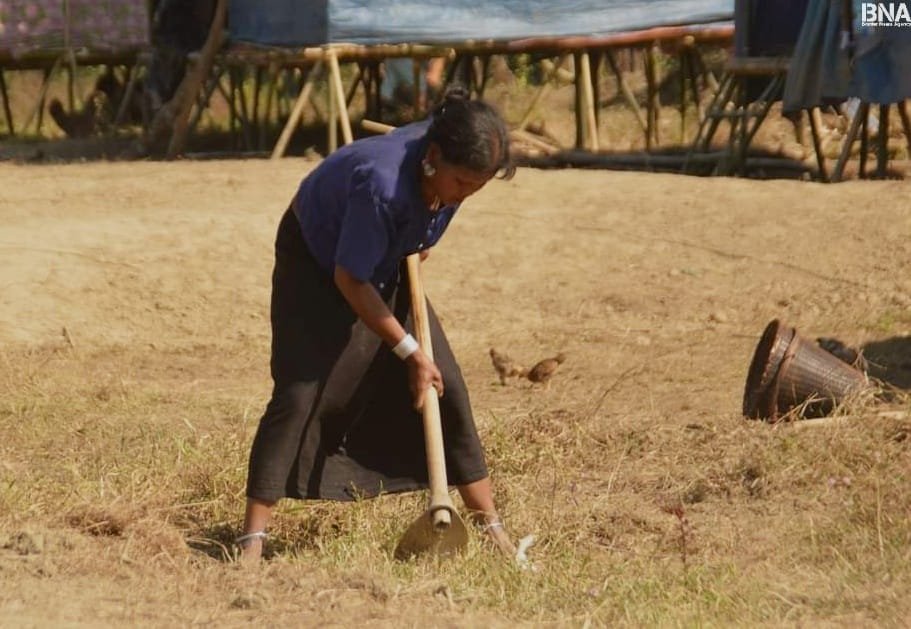Minority groups in the Arakan region report that surviving amidst armed conflicts has become extremely challenging for them.
The minority groups, including the Mro, Thet, Khami, Daingnet, Maramagyi, Kaman, and Chin communities, are reportedly facing the most difficult circumstances because many of them live in remote and hard-to-reach areas with poor transportation infrastructure.
These minority groups, according to their leaders, are struggling to survive and meet their basic needs due to the lack of international humanitarian aid and the challenges posed by ongoing armed conflicts.
“Livelihoods are extremely difficult. Displaced people are facing even greater hardships. Some children are doing whatever work they can to survive. No organization is providing any assistance. People are living with the awareness that they must rely on themselves to get through this. Once stability returns, they will continue working in the professions they are skilled in,” a Thet community leader told Border News Agency.
These minority groups have reported cases of people being arrested and disappearing without a trace during periods of conflict. Additionally, they face casualties and injuries caused by landmines and unexploded ordnance left behind in the area.
Furthermore, their homes and properties have been destroyed during the conflicts, making reconstruction extremely challenging. Minority leaders also stated that they are deeply concerned about livelihoods and the education of their children in the aftermath of these losses.
“When stability is restored, we want to prioritize education for the youth. In terms of livelihoods, most people will return to traditional agriculture, such as farming and hillside cultivation. Security remains a major concern, especially the threat of aerial attacks. Preparations are also needed to prevent future abductions by ARSA along the border,” a Daingnet community leader from Buthidaung Township told Border News Agency.
In the final stages of the Arakan conflict, the Arakan Army (AA) has taken control of most towns in the Arakan region, including the Paletwa area. They are now establishing administrative mechanisms under the banner of the Arakan People’s Revolutionary Government.
The Arakan People’s Revolutionary Government has established an Ethnic Affairs Committee to address the needs of minority groups in the region. However, due to the ongoing conflict, there are still many unmet needs, and minority groups have expressed the necessity for international assistance.
These minority groups, as indigenous inhabitants of the region, have been living according to their traditional way of life. However, they remain underprivileged in many aspects, including education and healthcare. They are therefore calling for special attention and efforts to address their needs comprehensively.






